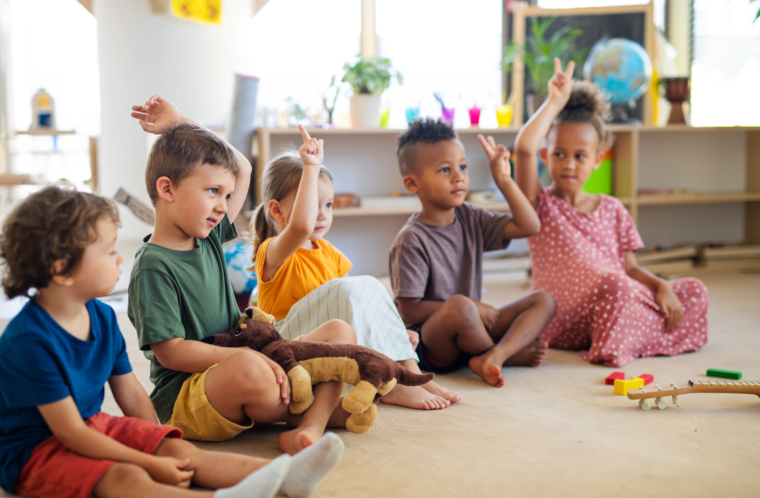Every child has a different learning style and pace. Each child is unique, not only capable of learning but also capable of succeeding. ~ Robert John Meehan

The letter for today is K, and the word is KINDERGARTEN.
Kindergarten is a very important time for children. They learn to read, write, and talk.
I remember the 1st time I heard of a kindergartner being held back. I wondered, “Why in the world would a 5-year-old be forced to stay for 2 years in a kindergarten class?”
Now, I understand the reasons teachers and school administrators give for retaining kindergarteners, but after 25 + years as an educator working with children with learning differences, my question is still, “Why”?
There are many reasons why kindergarten is important when it comes to reading and learning, but here are 3 key reasons:
- Foundation for future learning: In Kindergarten, children learn the basics for reading and learning. This includes things like knowing the letters in the alphabet, sounding out words, understanding what words mean, and being able to understand stories. These skills are important so that they can keep up with their classmates in higher grades. If they don’t have these skills, it might be harder to do well in school.
- Early identification of learning difficulties: Kindergarten teachers are often the first to know when a child is having trouble with reading or learning. If they tell the child’s parents, they can get the necessary help right away. This way, the child won’t have to remain in kindergarten longer and will do better in school and life.
- Social and emotional development: Kindergarten is not just about learning letters and numbers. It’s also about social skills like sharing, taking turns, and solving problems. Kindergarten can help children with reading and learning issues build their confidence and make them feel better about themselves when they get the necessary support and nurturing. That way they have a better chance of being successful later in life.
Kindergarten is a critical time in a child’s education where they learn fundamental skills that form the foundation for future academic and life success. If you have concerns about your kindergartener’s progress, trust your intuition and don’t hesitate to speak with their teacher or seek additional support.
If your child has trouble reading and learning, join the Parenting Hub, where you can connect and network with parents who share similar challenges, ask questions, and seek solutions. And if you know someone with a child with learning differences, send them the link.

Florence, beautifully written, as always. Of course, I’m thinking of my kindergarten year (1 year?), and I especially remember being asked to color in a sketch of a hand– with an orange crayon. As young as I was, I knew that was stupid, and I was embarrassed to be doing it. I was light pink and all my mates were. But, while there existed “Flesh” colored crayons, there were none in our group’s collection. Also in the class was a boy named David Hughes, and when we were building with blocks, David had a definite structure and was building it with alacrity. I asked him what he was building, and he said “an airport.” I have occasionally wondered what he grew up to be. Kindergartners are more sophisticated and complicated than many would think.
Many people underestimate children in general… not just kindergartners.
Kindergarten is so important for learning social and learning skills.
It is, and these skills can be taught through play.